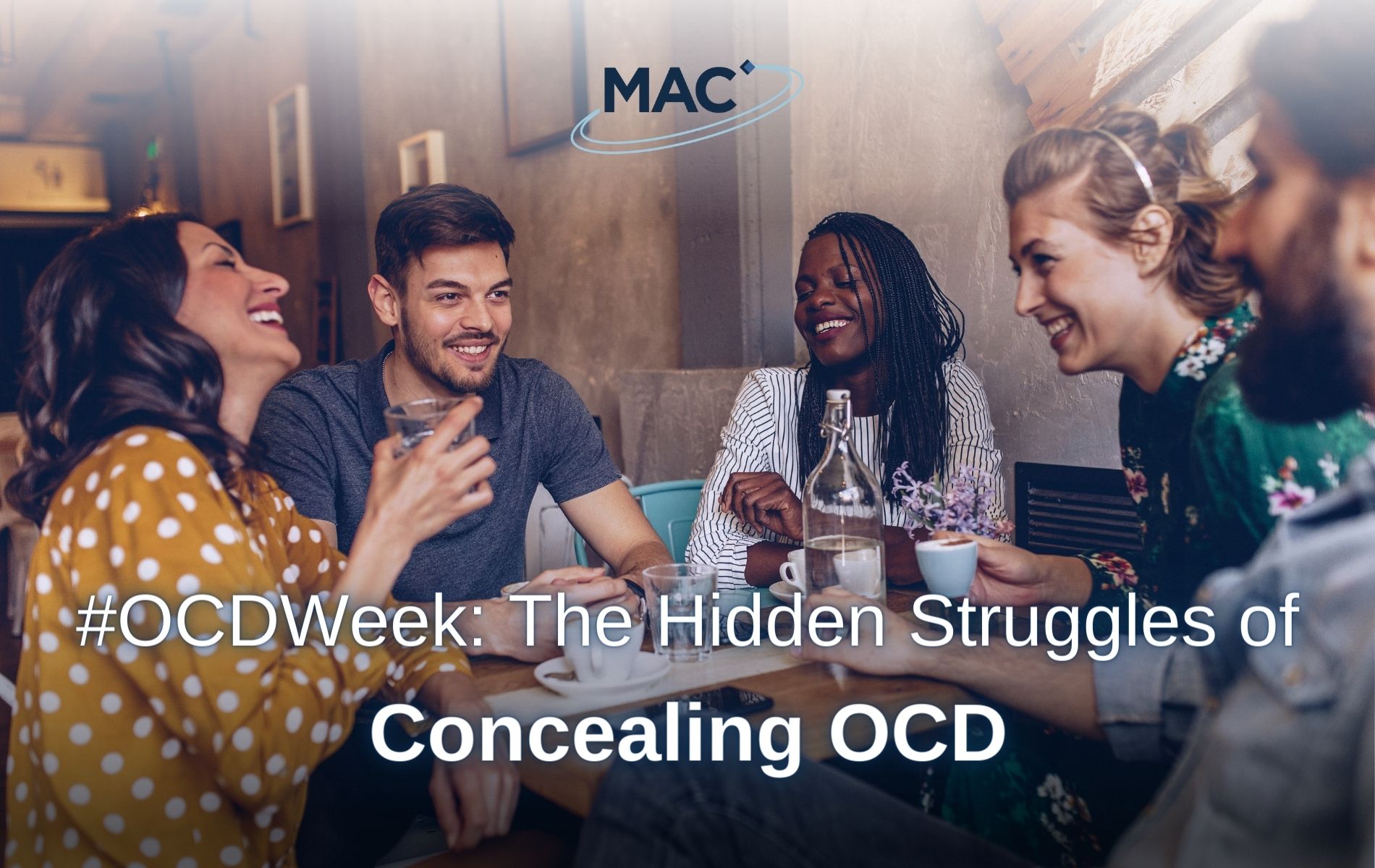Imagine living with intrusive, distressing thoughts and repetitive compulsions, and then imagine feeling compelled to hide this from family, friends, partners, and co-workers. This is the daily experience for many people who are living with obsessive compulsive disorder (OCD).
For this year’s OCD Awareness Week, we’re shining a light on the reality of living with this mental health condition, a condition that is often stigmatised and misunderstood but affects 750,000 people in the UK1.
Living with OCD can be a daily battle, and the desire to appear “normal” can be overwhelming. This drive to fit in and avoid judgment or stigma can lead individuals with OCD to hide their symptoms. They wear a metaphorical mask, concealing their intrusive thoughts and compulsive behaviours behind a facade of normalcy.
One of the primary reasons individuals hide their OCD symptoms is the fear of being misunderstood. OCD often involves irrational fears, unwanted and often distressing intrusive thoughts and seemingly bizarre rituals as an attempt to neutralise or relieve the feeling of anxiousness, however any relief experienced from these rituals is only temporary, and the cycle continues. These behaviours can be challenging for others to comprehend. As a result, those with OCD may choose to keep their struggles hidden to avoid judgment or dismissive reactions from friends, family, or colleagues.
A common type of intrusive thought for those living with OCD relates to violence and sex. Sometimes referred to as Harm OCD, these individuals experience aggressive obsessions, or unwanted thoughts of violence towards themselves and others. Sexual OCD causes the individual to fixate on specific sexual behaviours or situations. These thoughts can be troubling, especially when the subject of obsession is taboo. It has been estimated that between 6% and 24% of people with OCD will experience some form of sexual obsession2. Although the individuals living with these types of OCD don’t act on these intrusive thoughts, they may not reach out to friends, family, or medical professionals because of the taboo nature of these thoughts. In fact, studies show that those with violence and sexual obsessions strenuously avoid sharing them with friends or family, and that it is more difficult to seek help3.
The Stigma around OCD
The stigma around OCD itself, let alone the subject of taboo intrusive thoughts, is a harsh reality. Many people hold misconceptions about OCD, often associating it solely with cleanliness or neatness quirks. This lack of understanding can lead to discrimination, exclusion and feelings of frustration for example, when OCD is used as a personality quirk or an adjective (we’ve all no doubt heard someone say they’re “a little bit OCD”). To avoid the potential stigma, individuals may go to great lengths to hide their symptoms, even when it comes at a cost to their mental health.
This stigma and subsequent hiding of OCD symptoms can lead to feelings of profound isolation and loneliness. Individuals feel like they are living a double life – one in which they conform to societal expectations, and another in which they grapple with their intrusive thoughts and compulsions in secrecy. This isolation can exacerbate the emotional toll of OCD as individuals have no outlet to share their struggles or seek support, putting a strain on relationships between friends, family, and romantic partners.
Maintaining the facade of normalcy while battling OCD behind closed doors is incredibly taxing. The mental energy required to suppress intrusive thoughts and resist compulsions is exhausting. In studies investigating people living with OCD, a strong correlation was found between fatigue, including mental fatigue, and the condition4.
New Medication for OCD?
Here at MAC, we are committed to improving the quality of life for people living with OCD and creating safe environments where non-judgemental and objective discussions can happen between trained healthcare professionals and people living with OCD.
We are currently investigating a medication that is thought to target a different signalling pathway in the brain to current OCD treatments, which may help to control obsessive or compulsive behaviours. With your participation, you may be able to contribute to scientific research, which may lead to a new medicine to help people living with OCD.
The trial is taking place at MAC clinics in Lancashire, Greater Manchester, Merseyside, South Staffordshire, South Yorkshire, Teesside, and West Yorkshire.
To be eligible, you must:
- Be aged between 18 and 65 years old.
- Have had OCD or OCD symptoms for at least 1 year.
- Feel that your current OCD medication (antidepressant) is not fully working.
Eligible participants will receive up to £490 for their time and commitment to the study, along with reasonable travel costs. If the treatment works, you may be allowed to continue taking it (known as an open-label extension) for up to 48 weeks.
For more information on how you can get involved, visit our OCD Research page.
1 NHS Inform – Obsessive compulsive disorder (OCD)
2 VeryWell Mind – Sexual Obsessions in OCD
3 Anxiety Disorders – Stigma in Obsessive Compulsive Disorder
4 Psychiatric Quarterly – Fatigue Experiences Among OCD Outpatients




